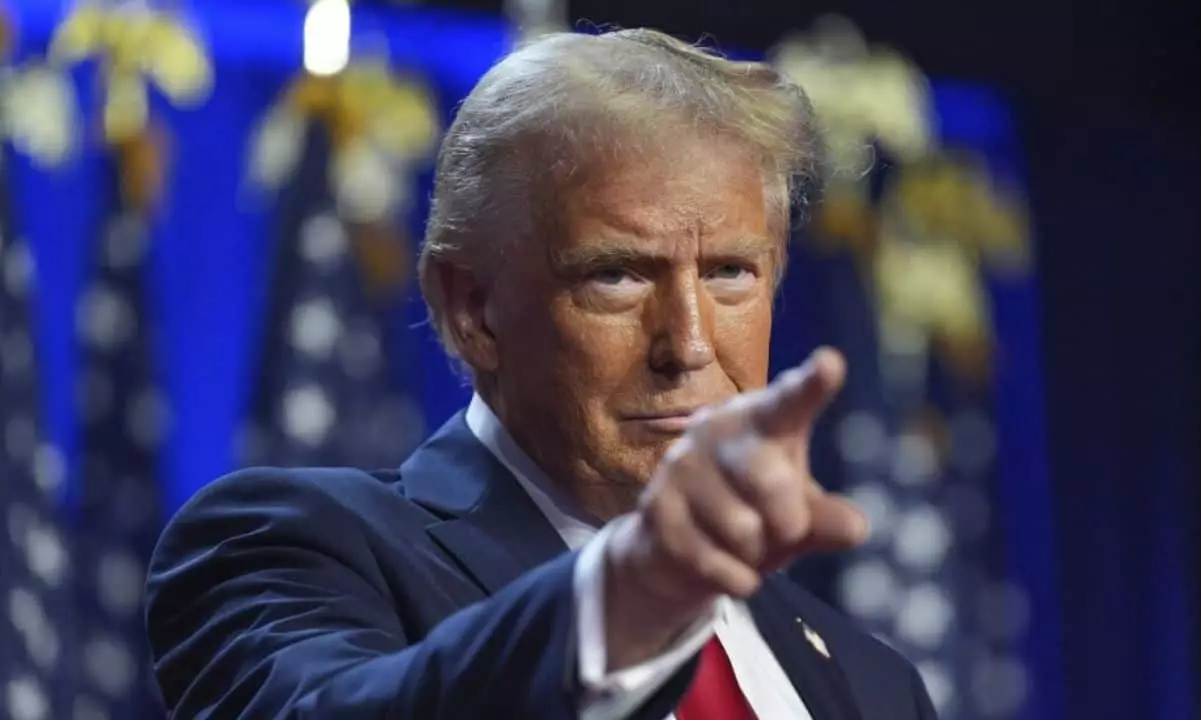The recent victory of Donald Trump in the U.S. presidential elections has sent ripples through the digital asset market. With Trump’s intentions to reshape the regulatory environment for cryptocurrencies, many within the crypto community are poised for significant changes. As his administration gears up for its inauguration in January, it’s essential to explore the implications of this shift for the cryptocurrency industry.
Although Trump initially expressed skepticism towards cryptocurrencies, his current campaign has taken a definitive turn towards support for Bitcoin (BTC) and other digital assets. His commitment to establishing a clear regulatory framework signals a desire to position the United States as a global leader in the crypto space. This evolution in stance could serve as a catalyst for increased institutional interest and participation within the sector, a sentiment echoed in reports from notable exchanges and research firms.
As highlighted in a recent institutional report by Bybit and Blocks Scholes, the anticipated shifts in regulatory landscapes could ignite a surge of institutional investment in the crypto market. Stakeholders are keenly aware that a government led by crypto-friendly policies can significantly alter operational dynamics, particularly regarding Bitcoin and altcoins. The expectation is that regulatory clarity will enable institutional players to engage more freely, ultimately driving up market valuations across various cryptocurrencies.
With Republicans gaining a majority in Congress, the environment for crypto legislation is ripe for transformation. Proposed bills such as the Financial Innovation and Technology for the 21st Century Act (FIT21 Act) could finally see their day in the sun. These legislative efforts aim to remove ambiguities surrounding digital asset regulations, potentially laying the groundwork for a more structured and secure crypto investing landscape.
Importantly, political contributions from crypto advocates during the election have also influenced legislative priorities, enhancing the visibility of crypto-friendly candidates. As new lawmakers take their positions, there is an optimistic outlook towards enacting laws that can support innovation in the digital asset market.
The potential impacts of Trump’s presidency may extend to the decentralized finance (DeFi) sector, which had faced challenges under the previous administration. The Biden administration’s cautious approach to DeFi—characterized by legal actions against certain decentralized entities—could give way to a more favorable attitude under Trump’s leadership. As regulatory frameworks evolve, interest in DeFi platforms and smart contract networks is likely to grow, opening the door for new investment opportunities.
Following Trump’s election win, BTC has already witnessed a notable increase of over 47%, showcasing the market’s positive reaction to the new political landscape. Approaching the $100,000 mark, traders remain enthusiastic about the potential for continued gains in the coming months. The combination of heightened institutional interest, favorable regulations, and the overall emerging crypto-friendly atmosphere under Trump’s administration could lead to a groundbreaking period in the crypto market.
The cryptocurrency industry stands at the brink of transformation with Trump’s presidency. From regulatory changes to boosted institutional investment, the potential for growth and innovation is vast. It remains essential for market participants to stay informed and adaptable as the political landscape evolves, navigating this new era in digital finance with both caution and optimism.








